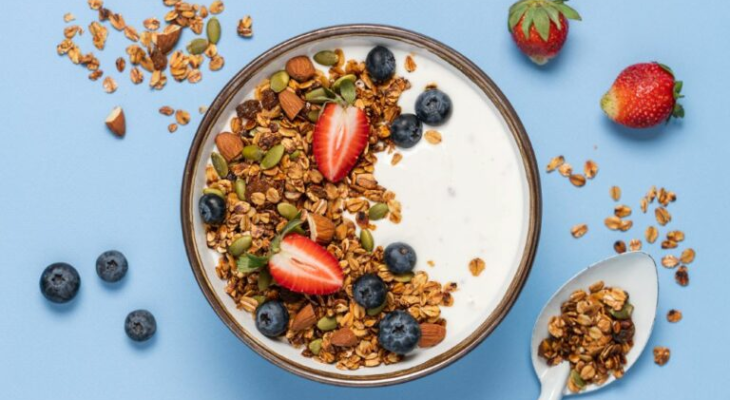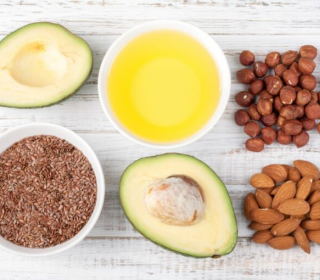Combatting Hay Fever: 5 Effective Methods to Alleviate Symptoms

The spring aka hayfever season is here, which means lots of red eyes and runny nasals. Hannah Braye reveals five ways to reduce symptoms.
While many people are happy to see Spring arrive, those with hay fever may feel a different way.
Hay fever, also known as seasonal allergy rhinitis, is an immune response that is not normal to pollen inhaled from trees and grasses.
It can cause discomfort and have a significant impact on your quality of life.
Hay fever can ruin your day. Here are five tips to stop it.
Pollen is a pollutant that can be harmful to your health.
You can reduce your exposure to pollen by tracking the pollen counts in your area. If possible, avoid spending a lot of time outside when they are at their highest.
On high pollen days, it is best to use fans or air conditioning instead of closing windows and doors.
Showering after being outside and before going to bed can help remove pollen from your skin, hair, and nasal passages. It may also reduce irritation, allowing you to sleep better at night.
Showering at home, especially before going to bed, will help remove pollen residue.
Try irrigating your nasal passages with a neti pot and saline solutions once daily to help remove any pollen residue.
In 2017, the Cochrane Review concluded nasal saline irrigating may be beneficial for adults and children to relieve hay fever symptoms and that it is unlikely to have any adverse effects.
A recent meta-analysis in 2019 found nasal irrigation improved nasal symptoms scores and reduced rescue antihistamine usage significantly among children with hayfever.

# 2 Eat more fermented food
Recent research indicates that the gut microbiome plays an important role in allergy conditions.
It is known that the microbiome modulates immune responses. A dysbiosis of gut microbes (a balance in the bacteria) can be a risk for inflammatory conditions such as hayfever.
Fermented foods that contain lactic acid producing bacteria may be able to divert the immune system from an allergic response.
Live yogurt may reduce allergy symptoms.
It may be beneficial to regularly include in your diet foods that are fermented, such as sauerkrauts, kimchis, kefirs, live yoghurts, miso, and kombuchas, which all contain live bacteria.
studies on dietary intake have shown, for example, that long-term consumption can reduce the symptoms of allergies in adults suffering from hay fever and nasal allergies.
Probiotics are a great way to boost your immune system.
research suggests that live bacteria supplements such as Bio-Kult’s Advanced Multi-Strain formula, which contains 14 strains of bacteria, can benefit sufferers of hay fever (similarly to fermented food, through interactions with the immunity system, which alter the natural course for allergic disease).
In a study, published in 2019, it was shown that taking a multi-strain supplement of live bacteria for eight weeks reduced the severity of hay fever symptoms and decreased medication usage.
It may even be more effective if taken before the hay fever season to prevent it.
These findings are similar to a 2017 studywhich found that supplementing a multi-strain formula of live bacteria containing Lactobacilli species and Bifidobacterium for eight weeks alleviated hay fever symptoms in sufferers of hay fever and improved their quality of life, possibly due to increased activity of cells which help regulate the immune systems.
Even though the benefits of live bacteria supplements were shown when they began at the peak of allergy symptoms it was hypothesized that these may be more effective if taken prior to hay-fever season.

Try acupuncture
There is increasing evidence that can help modulate your immune system and may have benefits for allergic conditions.
A meta-analysis from 2015 suggests acupuncture may be an effective and safe way to treat hay fever symptoms.
After analyzing the results of thirteen studies, it was discovered that, in comparison with control groups, the acupuncture treatment showed a significantly reduced nasal symptoms, medication score and IgE antibodies as well as an improvement in quality-of-life.

#5 Increase your intake of vitamin C and quercetin-rich foods
Quercetin, a phytonutrient with anti-allergy properties, is a great addition to any diet that helps reduce allergies.
Quercetin has been shown to have anti-inflammatory, antioxidant and anti-histamine qualities.
Some herbs, green and black tea, and fruits like apples, berries, and grapes are the main sources of food.
The anti-allergic property of quercetin, a phytonutrient, is well known.
Quercetin seems to work in synergy with vitamin C. So, eating lots of vitamin-rich foods like broccoli, kiwi fruit, strawberries, peppers, and parsley, is a great idea.
Studies have shown that children who consume more vitamin C experience fewer symptoms of hay fever.










